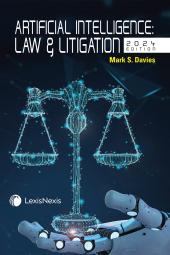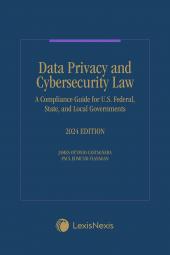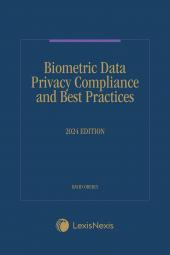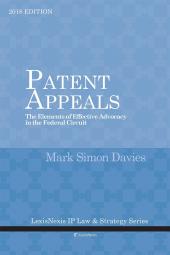We are in the process of migrating the LexisNexis Store. During this transition, some customers may not be able to access their Download Center or new electronic orders. Please call Customer Service 1-800-833-9844 or Chat With A Support Representative <https://supportcenter.lexisnexis.com/app/chat/store_chat/>
Artificial Intelligence: Law & Litigation
Select a format
 International Order Inquiry
International Order Inquiry
Select subscription type
Terms & conditions
Subscribers receive the product(s) listed on the Order Form and any Updates made available during the annual subscription period. Shipping and handling fees are not included in the annual price.
Subscribers are advised of the number of Updates that were made to the particular publication the prior year. The number of Updates may vary due to developments in the law and other publishing issues, but subscribers may use this as a rough estimate of future shipments. Subscribers may call Customer Support at 800-833-9844 for additional information.
Subscribers may cancel this subscription by: calling Customer Support at 800-833-9844; emailing customer.support@lexisnexis.com; or returning the invoice marked "CANCEL".
If subscribers cancel within 30 days after the product is ordered or received and return the product at their expense, then they will receive a full credit of the price for the annual subscription.
If subscribers cancel between 31 and 60 days after the invoice date and return the product at their expense, then they will receive a 5/6th credit of the price for the annual subscription. No credit will be given for cancellations more than 60 days after the invoice date. To receive any credit, subscriber must return all product(s) shipped during the year at their expense within the applicable cancellation period listed above.
The total price includes the product(s) listed in the Order Form and any Updates for a limited period (minimum period of 30 days) after the order is placed ("Order Window"). Shipping and handling fees are not included in the grand total price.
All shipments may be returned, at subscribers' expense, for full credit of the Price within 30 days of receipt.
Shipments may not be returned, and no credits will be issued, more than 30 days after receipt.
After the Order Window, subscribers will receive notice of Updates along with the then-current grand total price and order process as Updates become available. Subscribers will only be shipped those Updates they specifically request.
Product description
View a sample of this title using the ReadNow feature
Artificial Intelligence litigation is happening now. The recent success of AI is driven by powerful computing systems that "learn" from the deep study of vast troves of data and then use the new learnings to make nuanced decisions without direct human engagement. It has brought us medical diagnostic advances, useful virtual assistants, and tempting relevant advertising. With this increase in market success has come the predictable increase in litigation, which is why Artificial Intelligence: Law & Litigation should be added to any practitioner's library.
The 2024 Edition of Artificial Intelligence: Law & Litigation reviews recent judicial opinions that discuss Artificial Intelligence—the terminology, statutes and precedent needed by all attorneys interested in the development of the rule of law in this emerging area. Organized alphabetically, substantive legal areas of Artificial Intelligence rulings covered include:
• Antitrust
• Communications Decency Act
• Contracts
• Copyright
• Immigration
• Patents
• Privacy
• Products Liability
• Section 1983
• Securities
• Trade Secrets
• Trademark
Each chapter reflects an appellate approach to AI litigation strategy. An appellate approach to law coheres applicable legislative statutes, judicial rulings, and sound policy to reach the correct ruling for a particular dispute. To apply this approach to AI litigation, however, lawyers must first learn how to talk about AI.
Accordingly, the treatise begins with a discussion of the terminology needed for a conversation about AI. And while the statutory words do not refer to AI, the appellate approach starts with the relevant statutory words. Each chapter, therefore, begins with the most relevant statutes. In addition to clarity on terminology and familiarity with the key statutes, the litigator must know AI precedent. For each subject area, therefore, the treatise provides a careful discussion of the relevant cases. Along with the terminology, applicable statutes, and cases, each chapter also includes commentary to guide future strategies. A final chapter uses the Emotional Intelligence moniker to bring attention to judicial reactions to the power of AI.
The 2023 edition ISBN is 9781663361646.
eBooks, CDs, downloadable content, and software purchases are noncancelable, nonrefundable and nonreturnable. Click here for more information about LexisNexis eBooks. The eBook versions of this title may feature links to Lexis+® for further legal research options. A valid subscription to Lexis+® is required to access this content.
Table of contents
INTRODUCTION
CHAPTER 1 What is “Artificial Intelligence”?
§ 1.01 Overview
§ 1.02 How Human Neural Networks Work: A Simplified Summary
§ 1.03 Artificial Neural Networks
CHAPTER 2 Antitrust
§ 2.01 Antitrust
§ 2.02 Dual-Sided Markets
§ 2.03 AI Merger Allowed
§ 2.04 Platform Competition and Opportunity Act of 2021
§ 2.05 AI Standard Setting
§ 2.06 AI Antitrust Cases by Industry Sector
CHAPTER 3 Communications Decency Act
§ 3.01 Communications Decency Act
§ 3.02 Section 230 Applies to AI Defendants
§ 3.03 Section 230 May Not Apply to AI Defendants
§ 3.04 Yesterday & Today & Tomorrow
§ 3.05 AI Communications Decency Act Cases by Industry Sector
CHAPTER 4 Contracts
§ 4.01 Contracts
§ 4.02 Breach of Contracts
§ 4.03 Note
§ 4.04 AI Contracts Cases by Industry Sector
CHAPTER 5 Copyright
§ 5.01 Copyright Litigation
§ 5.02 Section 102: Copyrightable AI Data
§ 5.03 Section 107: Fair Use of Copyrightable AI Data
§ 5.04 AI Copyright Experts
§ 5.05 Feist Forward?
§ 5.06 AI Copyright Cases by Industry Sector
CHAPTER 6 Employment
§ 6.01 Employment Litigation
§ 6.02 Non-Compete and Non-Disclosure Agreements
§ 6.03 Fiduciary Duty
§ 6.04 Note
§ 6.05 AI Employment Cases by Industry Sector
CHAPTER 7 Immigration
§ 7.01 Immigration Litigation
§ 7.02 Law
§ 7.03 AI Plaintiff Prevails
§ 7.04 Personal Note
§ 7.05 AI Immigration Cases by Industry Sector
CHAPTER 8 Patent Litigation
§ 8.01 Patent Litigation
§ 8.02 Section 101: Patentable Subject Matter
§ 8.03 Section 112: Claim Construction
§ 8.04 Section 112: Written Description and Enablement
§ 8.05 Increased Role of Federal Circuit in AI Litigation
§ 8.06 AI Patent Cases by Industry Sector
CHAPTER 9 Privacy
§ 9.01 Privacy Litigation
§ 9.02 Fourth Amendment Aura
§ 9.03 Illinois: Biometric Information Privacy Act
§ 9.04 California Invasion of Privacy Act
§ 9.05 Washington State
§ 9.06 Federal AI Privacy Litigation
§ 9.07 Fourth Amendment Aura Redux
§ 9.08 AI Privacy Cases by Industry Sector
CHAPTER 10 Products Liability
§ 10.01 AI Products Liability
§ 10.02 Products Liability Litigation
§ 10.03 AI Product or Service?
§ 10.04 Note on Automotive AI
§ 10.05 AI Products Liability Cases by Industry Sector
CHAPTER 11 Section 1983
§ 11.01 Section 1983 Litigation
§ 11.02 Section 1983
§ 11.03 Note on AI and Section 1983
§ 11.04 AI Section 1983 Cases by Industry Sector
CHAPTER 12 Securities
§ 12.01 Securities Litigation
§ 12.02 Securities Law
§ 12.03 AI Defendants Prevail
§ 12.04 Note: SEC Actions Against “AI” Defendants
§ 12.05 AI Securities Cases by Industry Sector
CHAPTER 13 Trade Secrets
§ 13.01 AI Trade Secrets Litigation
§ 13.02 AI Trade Secret Defined
§ 13.03 AI Trade Secret Allegations Dismissed
§ 13.04 AI Trade Secret Allegations Not Dismissed
§ 13.05 Note: Overlap with Patent Litigation
§ 13.06 AI Trade Secrets Cases by Industry Sector
CHAPTER 14 Trademark
§ 14.01 Trademark
§ 14.02 The Lanham Act
§ 14.03 AI Defendant Prevails: No Likelihood of Confusion
§ 14.04 AI Defendant Does Not Prevail: Likelihood of Confusion
§ 14.05 Note
§ 14.06 AI Trademark Cases by Industry Sector
CHAPTER 15 Emotional Intelligence
§ 15.01 Emotional Intelligence
§ 15.02 Is DABUS an “Inventor”?
§ 15.03 Note: Human Emotions and AI Litigation
APPENDIX A AI Cases by Industry Sector
APPENDIX B Search Term Methodology
APPENDIX C Editorial Notice
APPENDIX D Selected Bibliography
Table of Cases
Table of Statutes
Index
 Lexis Nexis
Lexis Nexis 


